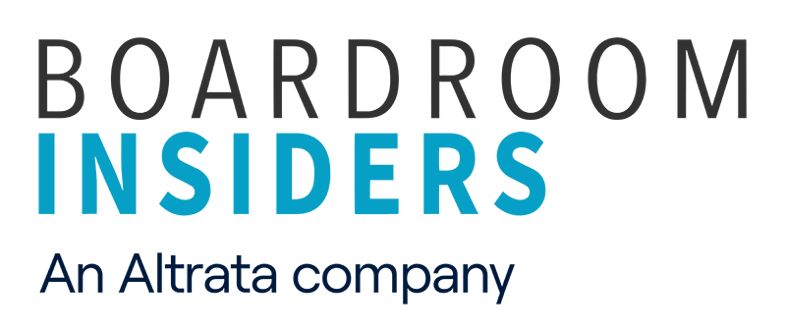 Given how pervasive social media has become, you’d think that going on LinkedIn, Twitter, or Facebook would be a sure-fire way to learn about an executive’s background, business initiatives, interests, and personal passions. Certainly you want this information to help you more effectively engage with key customers and decision makers. Knowing their priorities and challenges empowers you to speak to exactly what’s on their mind and explicitly connect the dots between their business priorities and your solutions.
Given how pervasive social media has become, you’d think that going on LinkedIn, Twitter, or Facebook would be a sure-fire way to learn about an executive’s background, business initiatives, interests, and personal passions. Certainly you want this information to help you more effectively engage with key customers and decision makers. Knowing their priorities and challenges empowers you to speak to exactly what’s on their mind and explicitly connect the dots between their business priorities and your solutions.
But when it comes to large enterprise companies—specifically the Fortune 500—do CXOs really have a social media footprint?
According to a January 2016 article in Social Times, many top executives are social media shy. Among Fortune 500 CEOs, 61 percent are not active on any of the major social networks, according to the article. LinkedIn, not surprisingly, remains the most popular site for CEOs and while Twitter saw a 1.7 percent year-over-year increase in the number of CEOs on the site, compared to 2014, frequency of use is down. They report that half of all CEOs tweet once a month or less. Only 11 percent of Fortune 500 CEOs are on Facebook. And of 70 percent of CEOs who are active on just one social network, according to CEOTutorial.com, LinkedIn is what they joined first.
The C-suite, of course, is much more than CEOs. So we set out to learn what the larger picture is based on our own database of over 1,500 CXOs from the Fortune 500. They consist mainly of CEOs, CIOs, CTOs, CMOs, COOs, and CFOs.
LinkedIn:
Like the CEO.com report, we found that LinkedIn is the best place to find Fortune 500 CXOs. A full 97 percent of the Fortune 500 executives in our database have a LinkedIn profile. That being said, the depth of information in these profiles varies widely. Some are bare bones, just listing titles, company names and dates with no other details. Others seem to have been abandoned altogether, as evidenced by just a handful of connections and/or inaccurate information about their current jobs.
At the other end of the spectrum, some executives use LinkedIn as a robust personal thought leadership vehicle. LinkedIn has added a range of bells and whistles that has turned it into a powerful publishing platform where users can build out a rich repository of biographical information, posted articles, and original content that they might once have posted on a blog. With LinkedIn, they can now consolidate everything in one place.
For example, Chris Drumgoole, GE’s Chief Technology Officer, has a robust LinkedIn page. Named to his current position in December 2015, he hasn’t much to say yet about that role, but you can learn about his achievements as COO for IT—what he accomplished in Cloud transformation; his innovation in big data, Industrial Internet, and IoT; and his thought leadership activities. He’s just as thorough in describing his activities as COO of Terremark. He even delves into details from his job at TD Waterhouse back in 1998. You’ll learn about his top skills, where he was educated, and that he’s a technology and aviation geek and movie enthusiast—all pretty great insight if you are trying to understand who he is and what makes him tick.
Facebook:
We then turned our focus to Facebook, finding that just 28.6 percent of Fortune 500 CXOs in our database have profiles. Most use the platform to connect with their personal networks, so the content tends to be more personally focused. You’d expect—especially with high-profile CXOs—that these accounts would be private, but a surprising number are available to the public and wonderfully robust. For example, you can track the evolution of American Express VP and CIO Nigel Greenwood’s garden renovation, take in his fascination with British aviation, meet his dog Max (who is bullied by the family cat), and learn what he made for the family Christmas dinner.
Greenwood is one of the exceptionally avid posters to Facebook. As with LinkedIn, we found many profiles were shells or have seemingly been abandoned.
Twitter:
But when it comes to profile abandonment, Twitter trumps all. Some 17 percent of the executives we looked at have Twitter accounts, but out of these a whopping 41 percent have been inactive for six months or more—and in many cases, a year or more. Executives who have seemingly abandoned their profiles altogether include Howard Schultz, CEO of Starbucks; Henry Kravis, Co-Chairman and Co-CEO of Kohlberg Kravis Roberts & Co. (who only tweeted once back in 2009); Facebook COO Sheryl Sandberg (who, despite 198,000 followers has not tweeted since 2013); Jim Scholefield, the CIO of Nike; and Dana Anderson, the CMO of snack foods behemoth Mondelez International, formerly known as Kraft. Our study also revealed that a small percentage of executives in our database who once had Twitter accounts (3.5 percent) had deleted them altogether. And many of those who have accounts tend to be major retweeters, but with no context. So, it can still be difficult to learn anything useful from checking their accounts. Exceptions to these Twitter graveyards are vibrant accounts run by Jack Salzwedel, President, Chairman and Chief Executive Officer at American Family Insurance; Alan Gellman, CMO at Allstate’s Esurance unit; Cynthia Stoddard, CIO at NetApp; Charlie De Sanno, COO at Lockheed Martin, and Kim Metcalf-Kupres, CMO of Johnson Controls.
Blogs
Blogs can be another great place to learn about executives and their business and personal priorities. However, with the advent of publishing platforms like LinkedIn Pulse, blogs are no longer a very common platform for enterprise CXOs. Some CXOs--such as Charles Schwab’s Walt Bettinger—who once had blogs on their corporate websites, seem to have migrated to publishing articles on LinkedIn. Still others that looked promising turn out to have been abandoned. Only 1.8 percent of the Fortune 500 CXOs in our database maintain blogs—and more than half of these are technology executives (e.g., CIOs and CTOs).
Key Takeaway:
So what are we to make of this? Clearly these are all busy people who have varying attitudes about the value of social media. Some in the C-suite may dismiss it as a time suck. Others may simply not be very tech savvy. But there are many who make a commitment to regularly update their accounts with illuminating posts. They have something to say and enjoy the social interaction they generate. Chris White of Cisco, for example, blends fatherly pride over his kids’ achievements with all of the professional activities he does at Cisco on Facebook while focusing more on promoting IoT and tech innovation on his Twitter page. Overall, his social profile reveals a lot about the different facets of his life.
Ultimately, the takeaway here is that it’s important to include social media channels in your research—but with the understanding that when you are talking about senior executives, the results can be hit or miss. At Boardroom Insiders, reviewing an executive’s social media accounts—and incorporating insightful nuggets into our profiles—is a routine part of our research process. It is time consuming for sure, but it can yield a more robust profile of a CXO that you can use to open doors sooner and close bigger deals faster. And that’s always our primary goal for our customers.
Want to find the information these social media profiles lack? We have profiles on all of the top Fortune 500 executives with in-depth details on what is most important to them. See what our profiles look like by viewing our sample profiles.







Share Your Thoughts